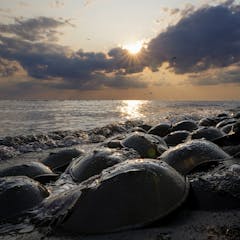
Articles on Medical ethics
Displaying 1 - 20 of 153 articles

The final report of the biggest treatment disaster in the history of the NHS is published on May 20.

Medical workers navigate their own moral and religious beliefs, professional standards, the law and the realities of clinical work – which can be especially complicated in abortion care.

Growing evidence shows industry payments to doctors play a key role in unethical pharmaceutical marketing. New Zealand’s disclosure scheme fails to capture all companies and payment types.

Assessing a patient’s autonomy can be more difficult when mental illness is the main source of their suffering.

What constitutes an ‘unborn child’ should not be decided by a relatively small number of religious conservatives.

After all, it’s not a real person.

The technology to link human brains with computers is developing quickly – but the path ahead is full of challenges.

New guidance indicates health professionals must not provide information to the police without a woman’s consent unless “concerned for her safety or the safety of others”.

The technology may be here sooner than we think. But we have so much to discuss first.

It’s a fallacy that the medical atrocities carried out by the Nazis involved just a handful of radicalised doctors.

Horseshoe crabs play a unique role in medicine, but they’re also ecologically important in their home waters along the Atlantic coast. Can regulators balance the needs of humans and nature?

A womb transplant can be life changing for the recipient, but there are serious ethical considerations too.

The settlement is a long-awaited moment of victory for Henrietta Lacks and her family. But the battle for justice in genetic and medical research is not over yet.

The decision-making capacity of people under 18 would be assessed on a case-by-case basis by medical practitioners.

The lessons students learn from dissecting donor bodies go beyond anatomy – and they try to pay that gift forward.

Hospital ethics committees and consultants do not make decisions for others, but their input can help support doctors and patients navigate difficult dilemmas.

Every extra organ available for donation is potentially lifesaving. And it can be done safely and ethically.

New regulations are being drafted in the Netherlands to allow euthanasia for a small group of children aged one to 12 for whom palliative care is not sufficient.

At the Third International Summit on Human Genome Editing, experts gather to discuss the path forward for CRISPR and other gene-editing technologies

As it became clear that the solution to the COVID pandemic would come from medical research, many people volunteered for human challenge trials.
